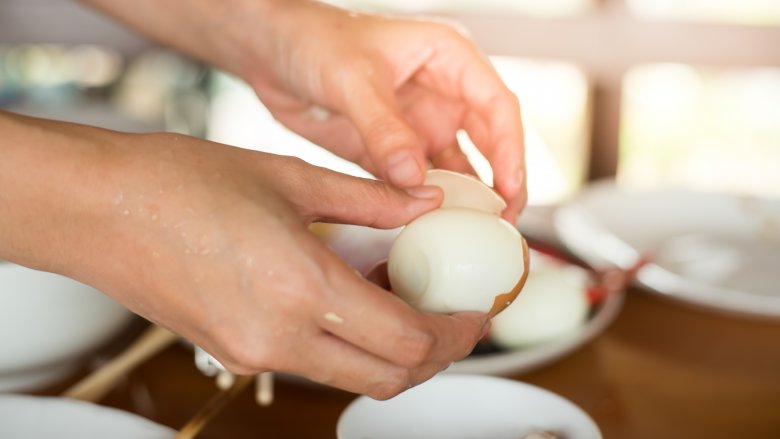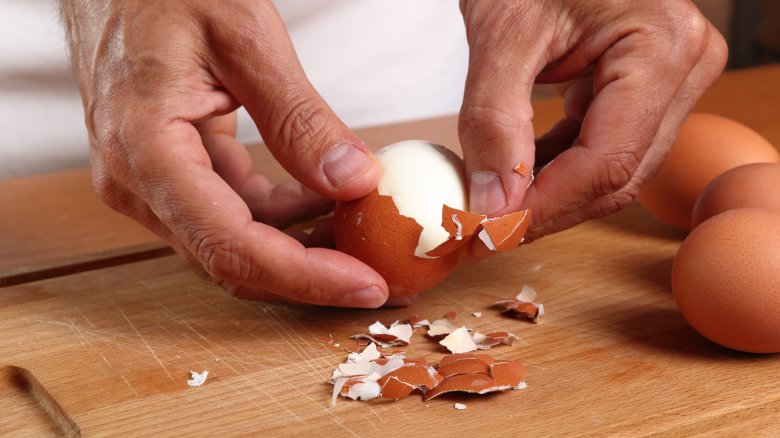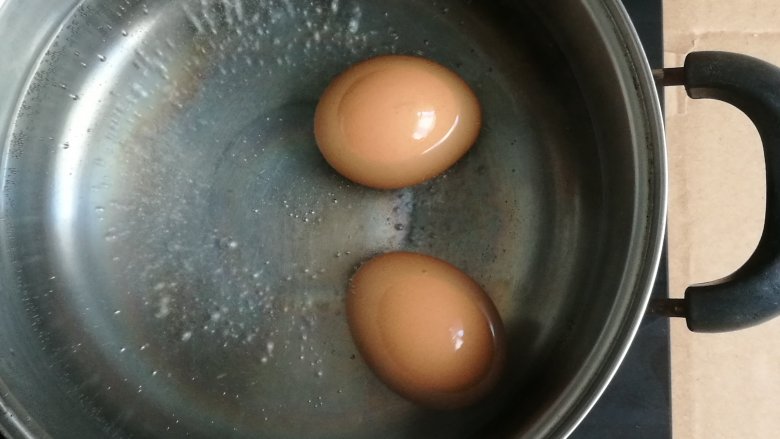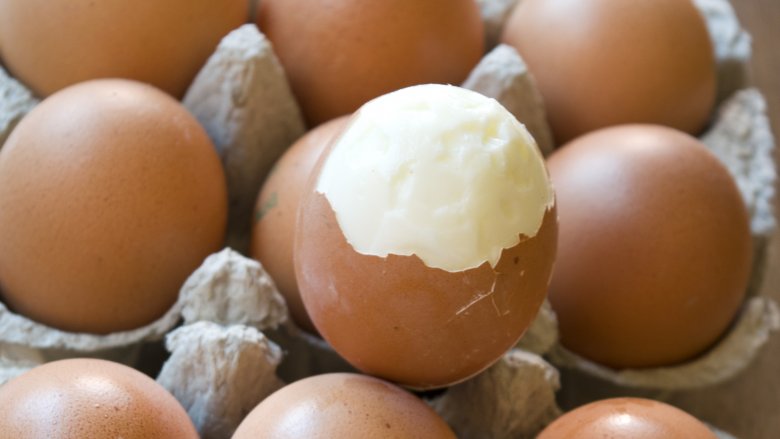The Secret Ingredient That Makes Hard-Boiled Eggs Easier To Peel
You're looking forward to devouring that egg you just hard boiled, but once you start cracking the shell and peeling it, you're not having a great time because it doesn't peel easily and — wait, why are there chunks of egg coming off with the peel? Argh! As it turns out, there is one single, simple ingredient you can add to your water that will make hard-boiled egg peeling way easier.
Even better, it's not an expensive ingredient — it's vinegar, which you likely keep around your house "just in case." (Hey, it even cleans toilets!)
Tests prove that vinegar is the secret ingredient your hard-boiled eggs need
BuzzFeed helpfully tested out several different popular theories on how to hard boil eggs for the best peeling results. One of the easiest methods, that had similar results across the board, was the addition of vinegar to the boiling water.
Other methods were explored, such as whether it's better to add an egg to already-boiling water, or should you put it in the cold water first before firing up the stove? Is an ice bath after boiling necessary for great-peeling eggs, or is it a waste of time?
After extensive testing, using both fresh eggs as, well as eggs that had been hanging out in the fridge for a week, it was discovered that adding a bit of vinegar (around 1 tablespoon for every 4 cups of water) helped break down the shell no matter what method was used to actually cook the eggs.
Why does vinegar make hard-boiled eggs easier to peel?
While there are plenty of types of vinegar on store shelves, you'll just want to use plain white vinegar as it doesn't have any additional ingredients (via Gnarly Science). What you're looking for is plain acetic acid diluted in water, so white vinegar fits the bill — don't use anything like rice vinegar or apple cider vinegar. While they will work, they won't work as well because the acid is not only diluted by water, but also by the other ingredients which will make it less effective in your pot.
Science tells us that the egg's shell is made of calcium carbonate, and the vinegar dissolves some of it (via Chowhound). The reason vinegar works so well on egg shells is it's an inorganic acid that breaks down some of the shell, and in doing so, it makes it thinner, and is thereby easier to peel. While adding a little to your boiling water only breaks down some of the shell, which is perfect for peeling purposes, you can actually completely remove a shell from an egg using straight vinegar — yes, really. Place them in a pot or bowl and cover them completely with vinegar. Put them in the fridge for an entire day, and repeat the process (very carefully) with a fresh batch of vinegar for another 24 hours. While this isn't something you'll want to do for your hard boiled eggs, it does show a little more of the science behind adding vinegar to boiling water.
It also discovered that dunking the egg(s) into an ice bath immediately after cooking helped some, but even the eggs that didn't receive the ice bath treatment were still pretty easy to peel. In addition, testing revealed that there isn't much of a difference between using fresh eggs or older ones, so you don't have to worry about how old your eggs actually are (if you even know).
Does baking soda make hard-boiled eggs easier to peel, too?
There were a few other popular theories put to the test during this evaluation as well. Baking soda is one idea that has floated around for awhile and has been tested by others too, in order to determine if it made a positive difference or not. When tested by The Kitchn, the results weren't positive and didn't make the egg peeling process any easier.
Similarly, in the BuzzFeed test, baking soda was added to the water to see if it made a difference in their egg-peeling adventures. The decision was made to limit baking soda to just 1 teaspoon, as they'd read that adding too much could make the eggs taste more sulfuric, which you do not want to do. The results showed that it didn't make any difference anyway, so don't bother trying this one out at home.
So, the next time you set out to hard-boil eggs, add some vinegar to the boiling water, gently boil them for around 14 minutes (or to your desired doneness), and give them an ice-cold bath immediately after the timer beeps. You won't have to curse at your eggshells ever again.



